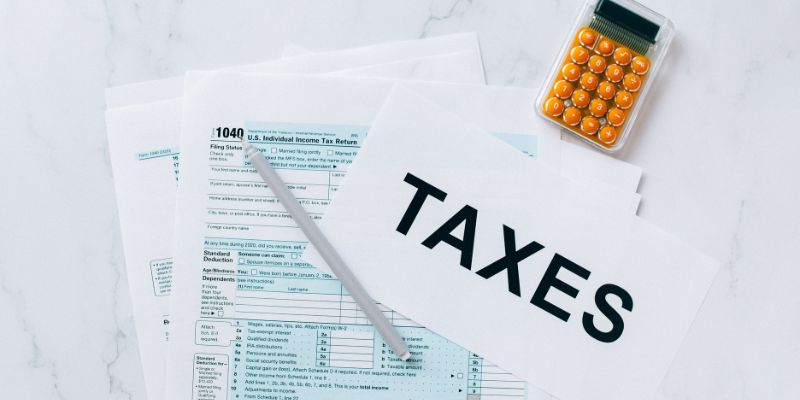How Important Is Reconciliation For Tax Returns?
Reconciliation is more than just an "accounting" word. It means matching financial numbers with those reported to the tax office to ensure everything adds up as calculated. This step is not just about being accurate. You must avoid errors that could lead to audits or penalties. Whether you're handling income, expenses, or deductions, reconciliation ensures your return reflects the truth. In this article, we'll explain what tax reconciliation involves and all the nitty-gritty details around the topic. So, without further ado, let's begin!

What Is Reconciliation For Tax Returns?
Definition Of Reconciliation In Tax Terms
Reconciliation in tax means you recheck your numbers to ensure everything is accurate. You're matching financial records with whatever has been reported to the tax office or other forms. For instance, whatever you are claiming as your income, expenses, or deductions should be able to match all the other documents (such as pay slips, bank records, tax forms, etc.). That way, there will be no mistakes with your tax return.
Common Areas Where Reconciliation Is Needed
One key area for reconciliation is bank statements. You compare your statements to your financial records to ensure all numbers are correct. For instance, every income deposit or expense should appear in both records. Tax documents, like W-2s for employees or 1099s for freelancers, are another common area. These forms show how much you earned and were taxed, and they must match the income you report. Reconciliation is also needed for deductions to confirm you can back up what you claim.
Why Reconciliation Is Important When Filing Taxes

Ensures Accurate Tax Filings
Reconciliation plays a key role in filing taxes correctly. You avoid overpaying or underpaying taxes by matching your records with tax forms. Overpaying means you lose money that could stay in your pocket. Underpaying might lead to penalties or interest later. Reconciliation also helps prevent errors on your tax return. Mistakes like listing the wrong income amount could trigger a tax audit, which can be stressful and time-consuming. Keeping your records accurate smoother the tax filing process and helps ensure you pay only what you owe.
Helps Identify Discrepancies Early
Reconciliation lets you spot issues before they become more significant problems. For example, you might notice missing income from a client or an expense that is not recorded. Finding these early allows you to correct them in time for tax filing. It also ensures you claim all eligible deductions, which can save money. If you wait until the last minute, it's harder to fix these mistakes. Reconciliation reduces Stress during tax season by giving you confidence that your records are in order.
In short, reconciliation ensures your taxes are accurate, saves money, and prevents potential problems with tax officials. It’s a step you should never skip.
How To Reconcile For Tax Returns
Steps To Reconcile Financial Records
Reconciliation begins with the collection of all financial documents. These are bank statements, receipts, and tax forms such as W-2s or 1099s. Review each document carefully and pair every transaction with your financial reports or tax forms. For instance, if a client paid you, make sure the payment is listed on your tax forms and matches your bank records. For example, if a client paid you, ensure that even a single payment like that is reflected in your tax forms and your bank records. If the figures do not add up, find out why and correct the difference.
Tools To Make Reconciliation Easier
Reconciliation can take time, but using the right tools makes it simpler. Accounting software (such as QuickBooks, FreshBooks, Xero, etc.) can automatically match your transactions with bank records and tax forms. These new apps and software save you the effort people once put into reducing errors.
If you find reconciliation too tricky or time-consuming, a tax professional can help. They have the experience to spot errors and ensure everything is accurate. Working with them is especially helpful if you have a business or complex taxes. Using tools or getting help makes the process quicker and more reliable, so you can confidently handle your taxes.
What Happens If You Don’t Reconcile?
Risks Of Filing Without Reconciliation
Skipping reconciliation when filing your tax return can lead to big problems. The IRS may find mistakes if your records do not match the amounts on your tax forms. This increases your chances of facing tax penalties, such as late fees or interest on unpaid taxes. Refunds can also be delayed if there are errors in your return. The IRS may hold back the processing of your tax filing until all issues are fixed, causing Stress and delays.
Consequences Of Reporting Errors
The IRS will audit your taxes if they spot them. The audits will involve a close review of your financial records. Rest assured, the professionals will try to find and fix mistakes if they are unintentional. The process can take time and feel overwhelming, though. Sometimes, you may need to file an amended tax return to correct the errors, adding more work and Stress. Filing incorrect taxes can also harm your credibility with the IRS, making them pay closer attention to your filings in the future. Reconcile your records to avoid these issues right away.
Conclusion: When Should You Reconcile?

Reconciliation should be done regularly, not just at tax time. Monthly reviews of financial records help catch errors early and keep everything organized. This is especially important for those with irregular income or many transactions. Waiting until tax season can overwhelm the process and increase the risk of mistakes.
Related Posts
- Best Online Interest Rates For Savings Accounts In 2025
- Debt Consolidation: Benefits, Risks, And What To Consider
- How Important Is Reconciliation For Tax Returns?
- 7 Effective Ways To Build Credit Using Your Credit Card
- How To Get A Business Credit Card With Low Or No Credit?
- How Much Is The Food Tax In Arizona?